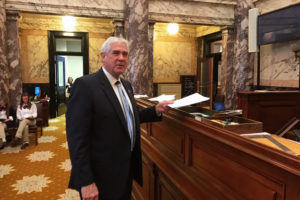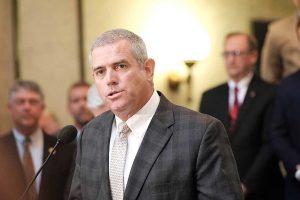
‘Not Getting Pregnant Possibly Saved My Life’: Reflecting on Black Maternal Health Week
Deputy Editor Azia Wiggins reflects on Black Maternal Health Week and confronts her own thoughts of being a Black pregnant woman in America.

Deputy Editor Azia Wiggins reflects on Black Maternal Health Week and confronts her own thoughts of being a Black pregnant woman in America.

New moms who cannot afford private insurance will be eligible for a year of postpartum Medicaid coverage starting in July after Mississippi Gov. Tate Reeves signed Senate Bill 2212 into law without fanfare today.

Research shows that 1 in 5 women suffer from mental health conditions during pregnancy and the postpartum period, Rachel Diamond writes.

Reva Kindred shares her first postpartum experience with professional Black women doulas and a lactation consultant. She writes that being pregnant and giving birth during COVID-19 was stressful, but with the right professional team of advocates and a tailored birthing plan, Reva and her husband were able to navigate postpartum during this pandemic efficiently.

“Politicians and policy makers know the end of Roe will mean drastic changes within the state, and they aren’t doing anything to prepare or to address Mississippi’s current social woes,” sociologist Kimberly Kelly writes.

Although the original Postpartum Medicaid extension bill died with a March 9 deadline, Sen. Kevin Blackwell and the Senate still have a few opportunities to send the provisions in the bill back to the House. The Senate can amend bills from the House currently in conference between the two chambers that address the relevant sections of Mississippi Code to include the postpartum extension.

For the second year in a row, Mississippi House leadership has once again killed an extension of postpartum Medicaid benefits, likely guaranteeing that many low-income people will lose health insurance benefits only two months after giving birth.

The 2022 Legislative Session has been remarkably rapid, compared to some of the gridlock seen in the Mississippi Capitol during the pandemic era. With the deadline for general bills to pass out of their original chamber approaching this Thursday, some of the session’s most significant goals are already checked off.

Mississippi’s justification for unconstitutional abortion restrictions has long revolved around the assertion that the laws, like the 15-week ban recently taken up by the Supreme Court, protect women and children. But the reality is now, and has long been, that Mississippi women and children’s health and economic security is not prioritized.
Mississippi Journalism and Education Group is a a 501(c)(3) nonprofit media organization (EIN 85-1403937) for the state, devoted to going beyond partisanship and publishing solutions journalism for the Magnolia State and all of its people.
125 S. Congress Street #1324
Jackson, MS 39201
info@mississippifreepress.org
tips@mississippifreepress.org
events@mississippifreepress.org
601-362-6121